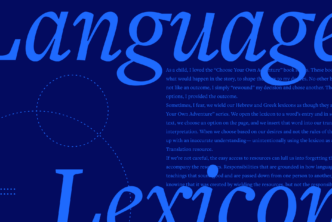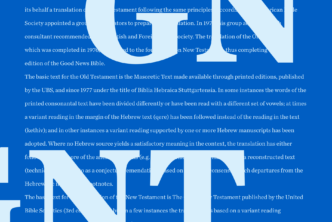Scholars have a name for the West’s interconnected canon of philosophy, history, and literature: the Great Conversation. It’s an enormous, fascinating body of work, and it’s reflected in an enormous, fascinating library: The 124-volume Classical Foundations Bundle.
That’s a lot of scholarship to take in, so let’s take a closer look at just three categories: ancient languages, literature, and philosophy.
1. Ancient languages: Liddell and Scott Greek–English Lexicon
This famous lexicon covers Greek from the eleventh century BC to the fifth century AD. It’s extremely detailed: each entry gives not only a definition, but also examples of irregular inflections and, most importantly, numerous quotations from classical sources to demonstrate usage. Of course, the same level of detail that makes LSJ such a treasure makes the print edition cumbersome: to get the most out of it, you have to flip between the main entries and the supplement, and then between LSJ and the primary sources.
Not so with Logos.
You’ll want it if you’re studying Homer and Hesiod. You’ll want it if you’re studying Plato and Aristotle. You’ll want it if you’re studying Paul or Chrysostom or Origen. For serious scholars of ancient Greek, LSJ is simply the most useful dictionary in the world.
On its own, LSJ costs $135; considering how much it adds to every ancient-Greek resource in your library, that’s a smart investment. But the Classical Foundations Bundle gives you an even better deal: you’ll get 123 more volumes across philosophy, history, and the classics, including many more reference works for both Greek and Latin.
2. Literature: Cervantes’ Don Quixote
You probably already know the plot of Don Quixote: the earnest Alonso Quijano, having read so many tales of knighthood and chivalry, imagines himself to be a knight named Don Quixote; the loyal Sancho Panza joins him on his adventures, stealing every scene with his unassuming wit. You know it’s a classic. What you may not know is how interesting it is.
For one thing, it was arguably the first novel: though several works compete for the title, the Quixote’s formal innovation is undeniable and tremendous. For another thing, it’s shot through with the most modern literary characteristic of them all: irony, the perceptible gap between what’s stated and what’s implied. (We all know Don Quixote isn’t the knight he thinks he is.) Quixote’s susceptibility to stories implicates all of us who find ourselves buying into shared narratives and allowing ourselves to be guided by them—in that sense, the story is subversive to the powers of epic and propaganda. It’s also just as meta as the twentieth century’s metafiction: in the sixth chapter of book 1, for example, a barber inspects Quixote’s library and comes across Cervantes’ own Galatea, which, he concludes, “has [only] some good invention in it” and “presents us with something but brings nothing to a conclusion.” In chapter 9, we learn (falsely) that the original Quixote itself was found in a heap of papers for sale, written entirely in Arabic. By the time we reach book 2 (not included in the Noet bundle), the protagonists have all read book 1.
It’s easy to read the great twentieth- and twenty-first-century novelists and conclude that only moderns could think this way. Don Quixote proves that assumption wrong, and it’s a sheer pleasure to read.
3. Philosophy: Immanuel Kant
Immanuel Kant is widely regarded as the greatest modern philosopher, so—whether or not you find merit in his conclusions—you’ll certainly want to be familiar with the broad strokes of his thought. Kant entered philosophy as a rationalist, in the mold of Descartes. Then Hume, the radical empiricist, “woke [him] from [his] dogmatic slumber,” leading him to start doubting the feasibility of working from subjective thought and perception to objective claims about the world. Truth, for Kant, conforms to the mind that thinks it: this makes him an important milestone in the postmodern turn toward the subjective.
It’s unsurprising, then, that Kant argues for God from intuition, not reason. “Two things fill the mind with ever new and increasing admiration and awe,” he writes: “the starry heavens above me and the moral law within me.” From that moral law follows the gap between how we are and how we know we should be; from reflection on that gap follows belief in God. But many of his theological conclusions are decidedly unorthodox—he’s widely thought of as advocating for self-salvation as opposed to atonement and divine grace; likewise, most Christians would object to his conclusion that truth is in the mind of the subject.
That’s one reason why he (like philosophy generally) is worth studying from a Christian perspective: if you’re going to make convincing arguments against these positions, you have to understand them. (Of course, there are lots of other good reasons to study philosophy.) The Classical Foundations Bundle gives you Kant’s most important works, along with the context within which he wrote—Descartes, Hume, and the other great works of the Western tradition.




